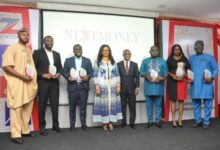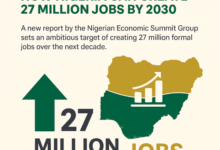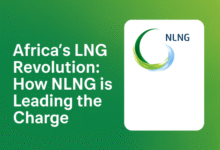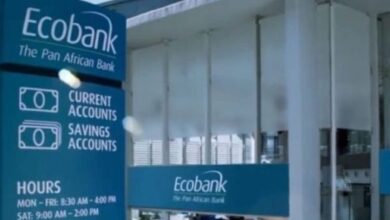Nigeria’s $2 Billion Broadband Revolution: Tijani Says Digital Infrastructure to Power GDP Growth and Inclusive Prosperity
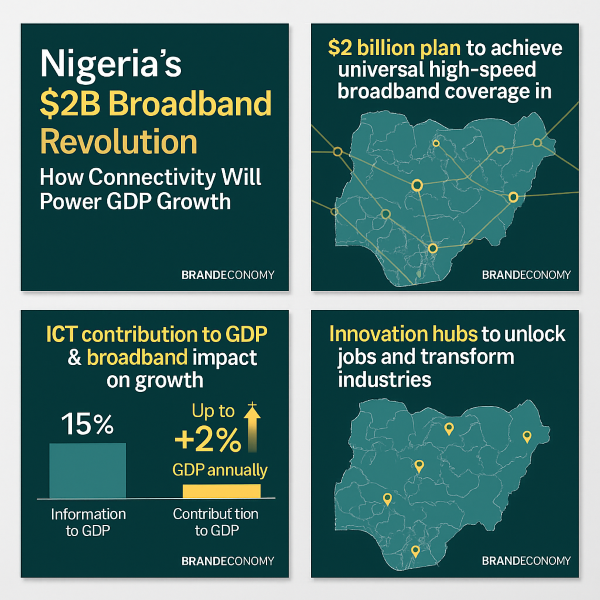
Nigeria is betting big on broadband — and the numbers could redefine its economic future.
The Minister of Communications, Innovation and Digital Economy, Dr. Bosun Tijani, has announced that the country’s new $2 billion national broadband expansion project will transform productivity, accelerate Gross Domestic Product (GDP) growth, and drive inclusive access to digital opportunities across all 774 local government areas within the next three years.
Speaking at the plenary session on “Smart Growth, Digital Leap” hosted by IHS Towers during the 31st Nigerian Economic Summit (NES #31) in Abuja, Tijani said the project represents “an audacious bet on Nigeria’s digital future.”
“Connectivity is not optional — it is the foundation of productivity,” Tijani stated, underscoring that broadband access is now as essential to economic development as electricity and transportation infrastructure.
$2 Billion Broadband Plan: The Ambition and the Model
Under the initiative, broadband will be treated as critical national infrastructure, unlocking private capital and regulatory support for full-scale rollout.
The financing model — 49% government and 51% private sector — blends public investment with private innovation, ensuring long-term sustainability.
The project is backed by strategic partners including the World Bank, International Finance Corporation (IFC), and Africa Finance Corporation (AFC), with the goal of achieving universal broadband coverage across Nigeria within three years.
Tijani explained that every local government area will have access to high-speed fibre-optic connectivity, laying the groundwork for digital inclusion, innovation ecosystems, and tech-enabled job creation nationwide.
“We are building the backbone for a digital economy that will make Nigeria a net exporter of technology and innovation, not just a consumer,” he said.
From Connectivity to Competitiveness: The Economic Case
Nigeria’s broadband penetration currently stands at around 50%, leaving millions of citizens offline — a gap that limits access to education, commerce, and digital services.
The Information and Communications Technology (ICT) sector already contributes about 15% to Nigeria’s GDP, one of the highest in sub-Saharan Africa. But Tijani believes that with the right infrastructure, that figure can rise sharply.
According to World Bank data, a 10% increase in broadband penetration can boost a country’s GDP by up to 2% annually.
“This $2 billion broadband plan is not just an infrastructure project — it is an economic multiplier,” the minister said. “It will enable new industries, strengthen SMEs, and catalyse innovation in every sector from agriculture to healthcare.”
Broadband as a Driver of Sectoral Transformation
The economic ripple effects of the project are expected to be profound. Economists estimate that improved rural broadband access alone could add up to $25 billion annually to Nigeria’s agricultural output, enabling farmers to access real-time market data, digital payment systems, and climate-smart tools.
Tijani added that broadband expansion will also boost logistics, e-commerce, and education, helping Nigeria transition from a consumption-based economy to a knowledge-driven one.
He highlighted that Nigeria’s 3 Million Technical Talent (3MTT) Programme — which trains workers in artificial intelligence (AI), cloud computing, cybersecurity, and data analytics — is being integrated with the broadband rollout to ensure the workforce can leverage new digital opportunities.
“We cannot build a trillion-dollar economy without universal connectivity,” Tijani said, calling the project the “digital backbone of Nigeria’s Renewed Hope agenda.”
Public-Private Synergy: The IHS Innovation Hub Example
The Minister praised IHS Towers for leading a new model of public-private collaboration through its Innovation Hub Project, which he described as West Africa’s largest technology incubation facility.
The IHS hub is expected to train thousands of young Nigerians, offering co-working spaces, mentorship, and access to venture capital.
The project mirrors India’s Digital India and Brazil’s Start-Up Brazil initiatives — both of which leveraged government and private partnerships to create millions of jobs and grow their digital economies.
“We are adopting proven models that show how infrastructure, innovation, and human capital can converge to create real economic transformation,” Tijani said.
Private Sector View: Opportunities and Challenges
Mr. Mohamad Darwish, Chief Executive Officer of IHS Nigeria, described Nigeria’s digital sector as a “story of rapid growth, immense potential, and persistent challenges.”
He noted that internet penetration has transformed business and society over the last decade — powering e-commerce, social media, agency banking, and mobile payments — while startups are now exploring AI, machine learning, and fintech innovation.
“Today, our country stands tall as Africa’s most vibrant startup ecosystem and one of the world’s leading creative communities,” Darwish said.
However, he cautioned that Nigeria still faces serious infrastructure and skills gaps, including limited rural connectivity, unstable power supply, and uneven digital literacy.
Darwish called for sustained public-private partnerships (PPPs) to address these challenges, saying the broadband project offers a chance to democratize digital access.
“To build a smart economy, we must treat digital infrastructure, innovation, and talent as core growth drivers,” he said. “We cannot achieve a prosperous and inclusive Nigeria by 2030 without digital technology at its core.”
Beyond Connectivity: Building a Smart, Inclusive Future
Both the government and private sector leaders agree that digital infrastructure is now the backbone of national productivity.
The broadband expansion, together with initiatives like 3MTT and innovation hubs, aims to create a digitally skilled workforce, attract foreign investment, and strengthen Nigeria’s global competitiveness.
Tijani emphasised that policy consistency, regulatory clarity, and affordability will remain central to achieving broadband goals, adding that the Tinubu administration is committed to reducing operational bottlenecks and expanding investor confidence in the telecoms space.
“This is not just a connectivity story — it is a story of empowerment, inclusion, and growth. Broadband is the bridge between where Nigeria is today and where it must be tomorrow,” he concluded.
BRANDECONOMY ANALYSIS: Broadband as the New Oil
Nigeria’s $2 billion broadband project signals a paradigm shift from resource-led growth to knowledge-led prosperity.
In the 21st century, nations compete not by exporting commodities but by exporting intelligence, innovation, and digital capability.
If effectively implemented, this broadband initiative could unlock unprecedented GDP growth, create millions of jobs, and position Nigeria as Africa’s digital powerhouse.
But success depends on one thing — execution discipline. The world will be watching to see if Nigeria can turn its digital ambitions into tangible economic transformation.


